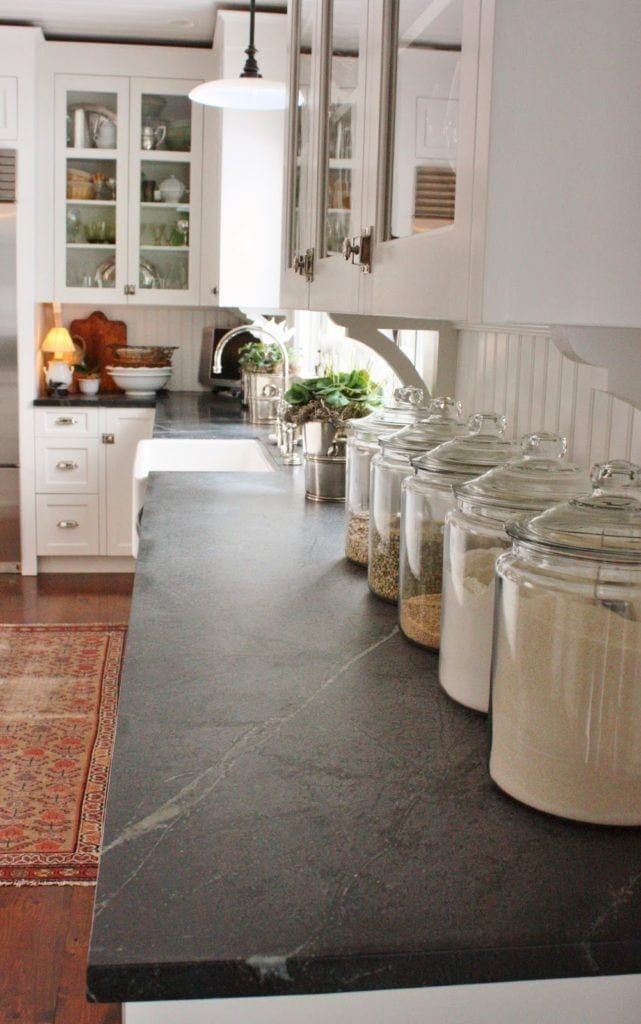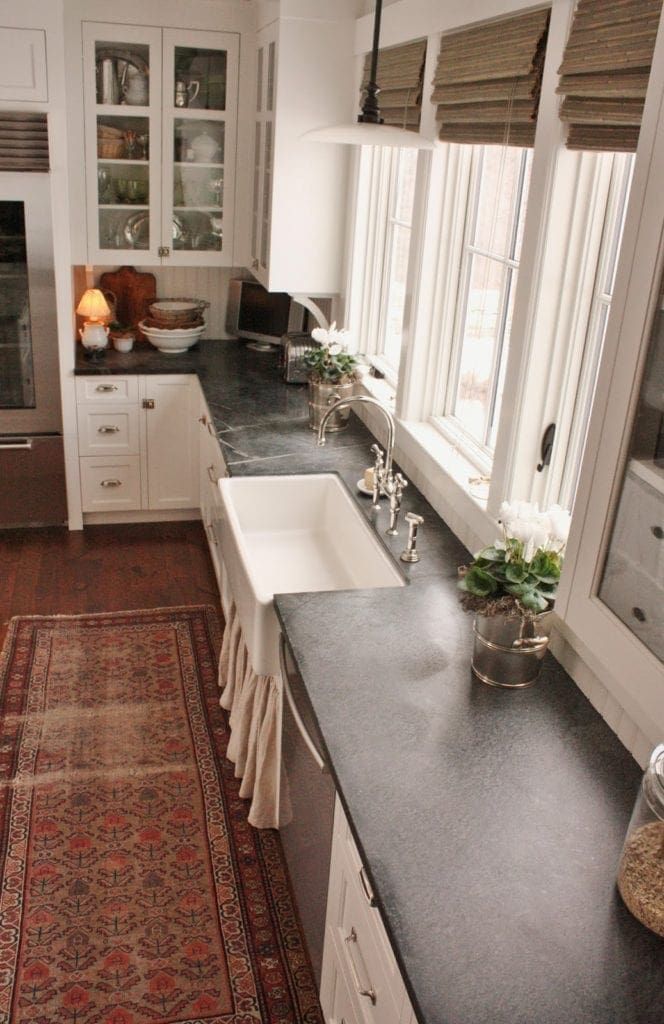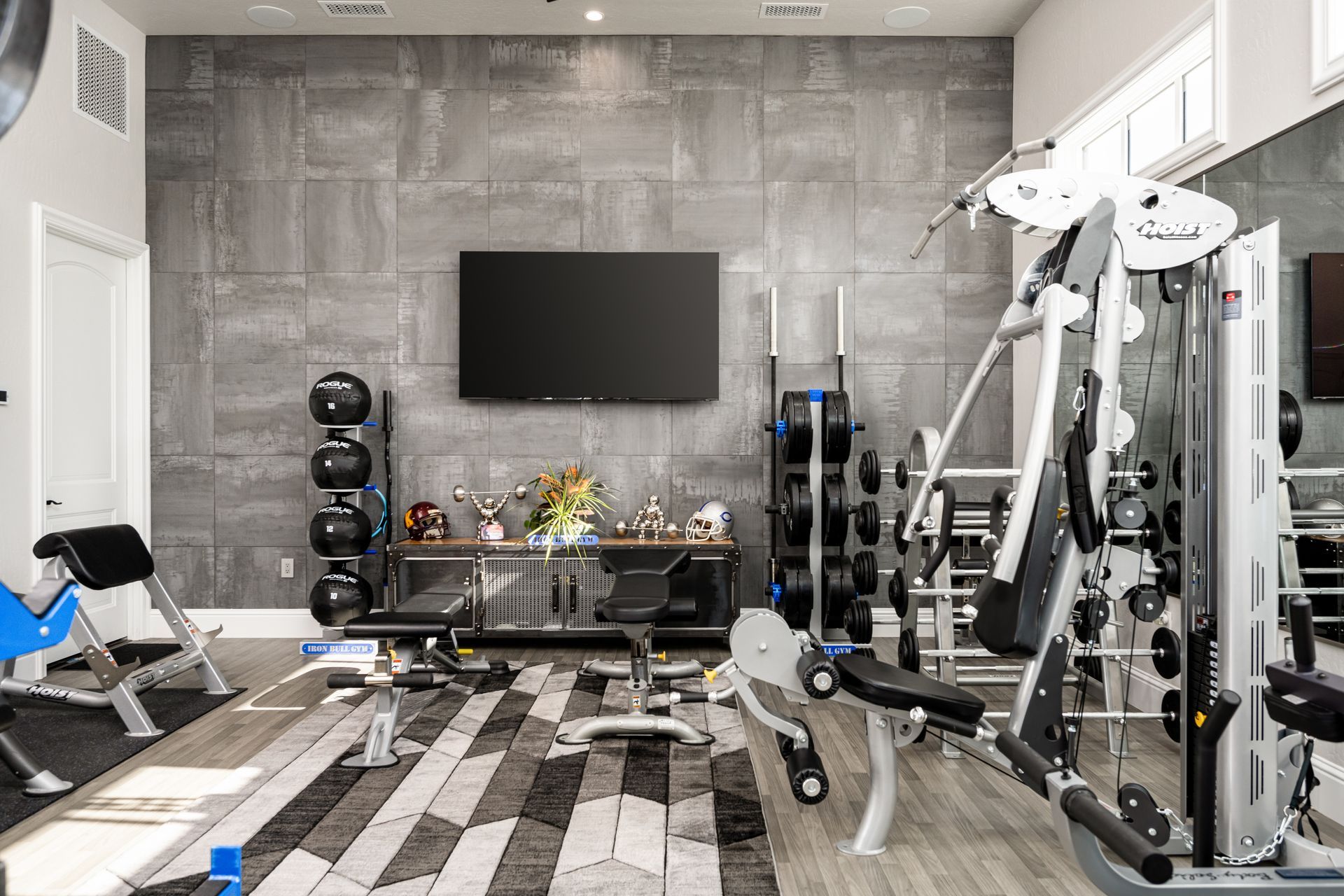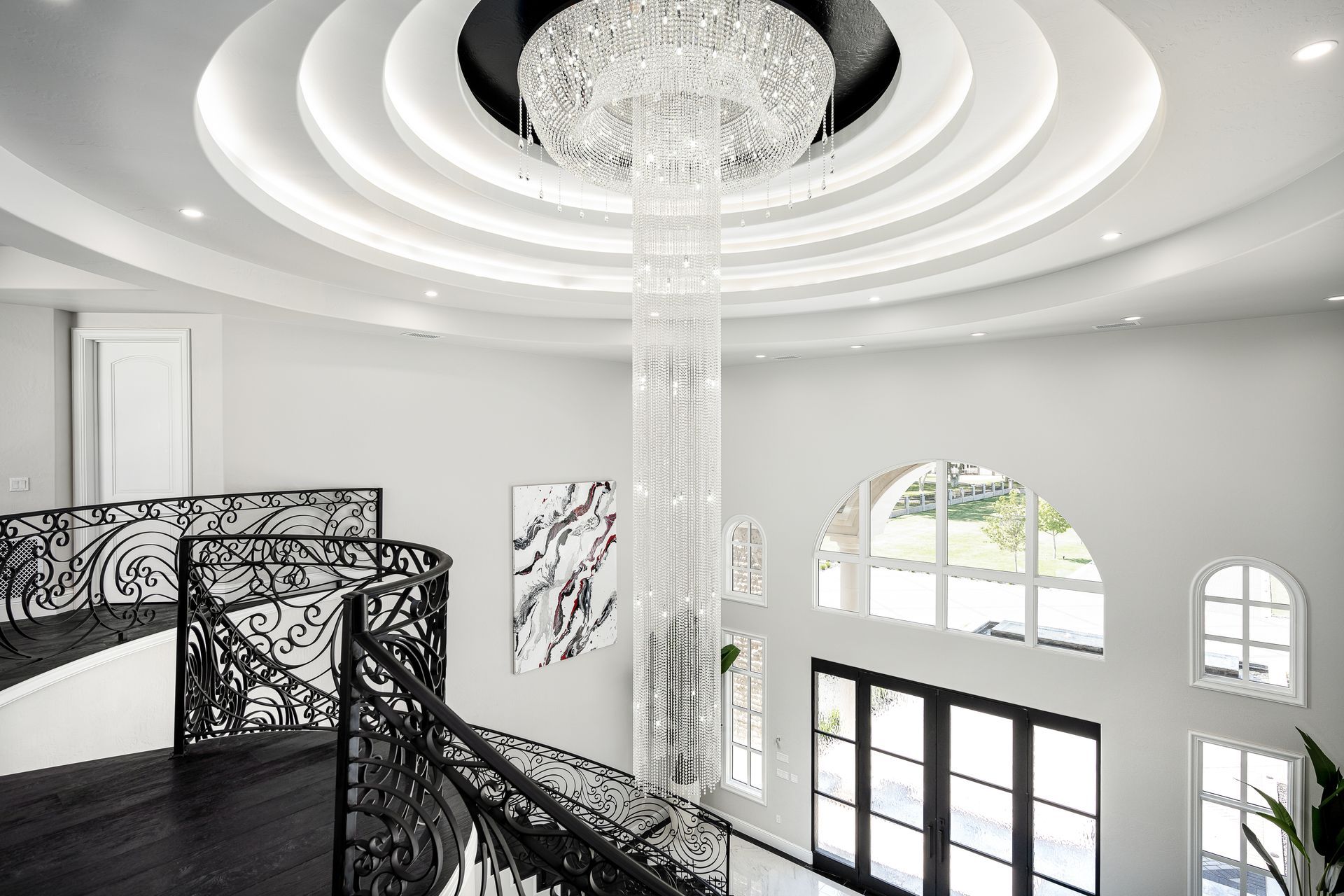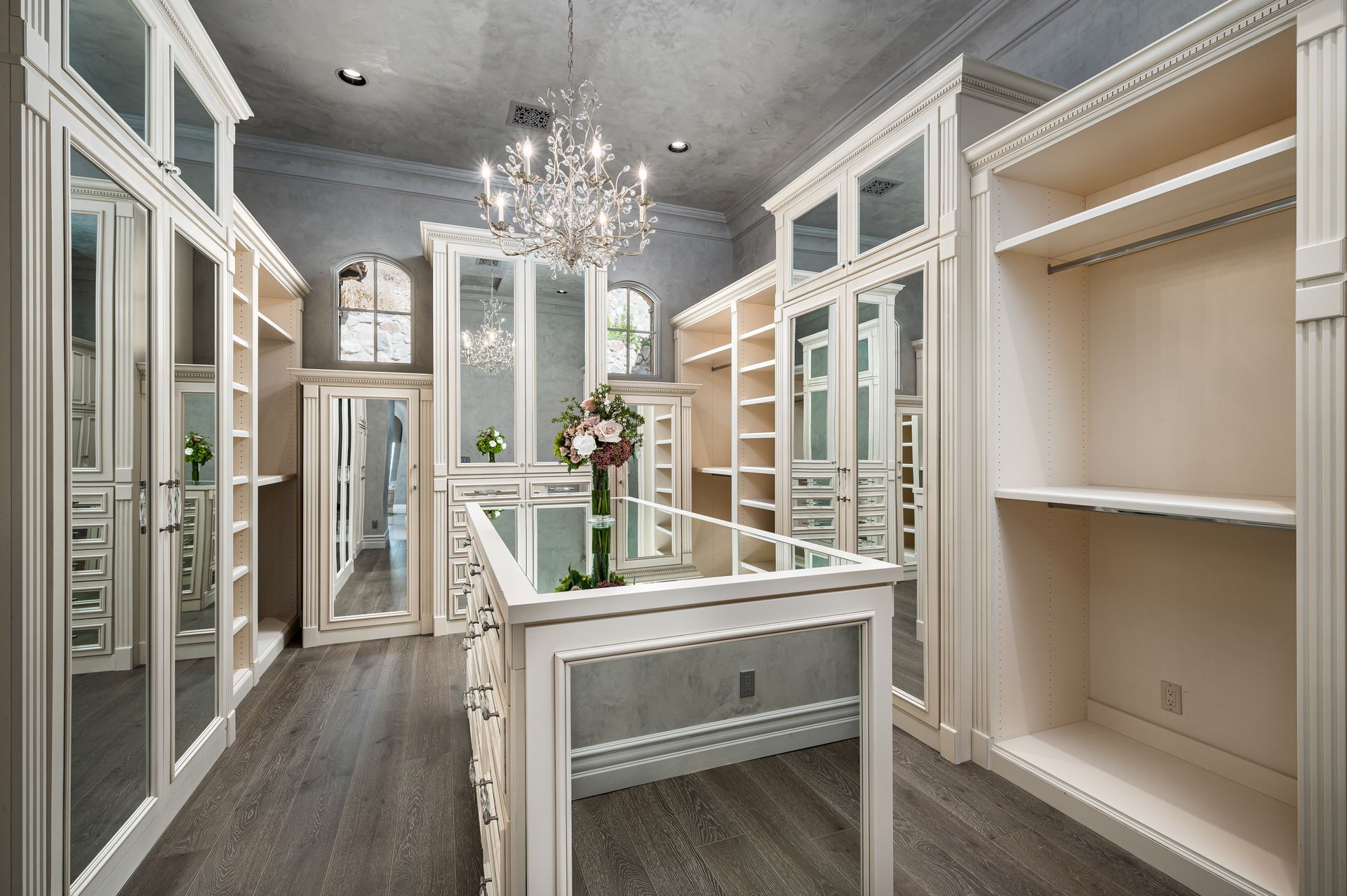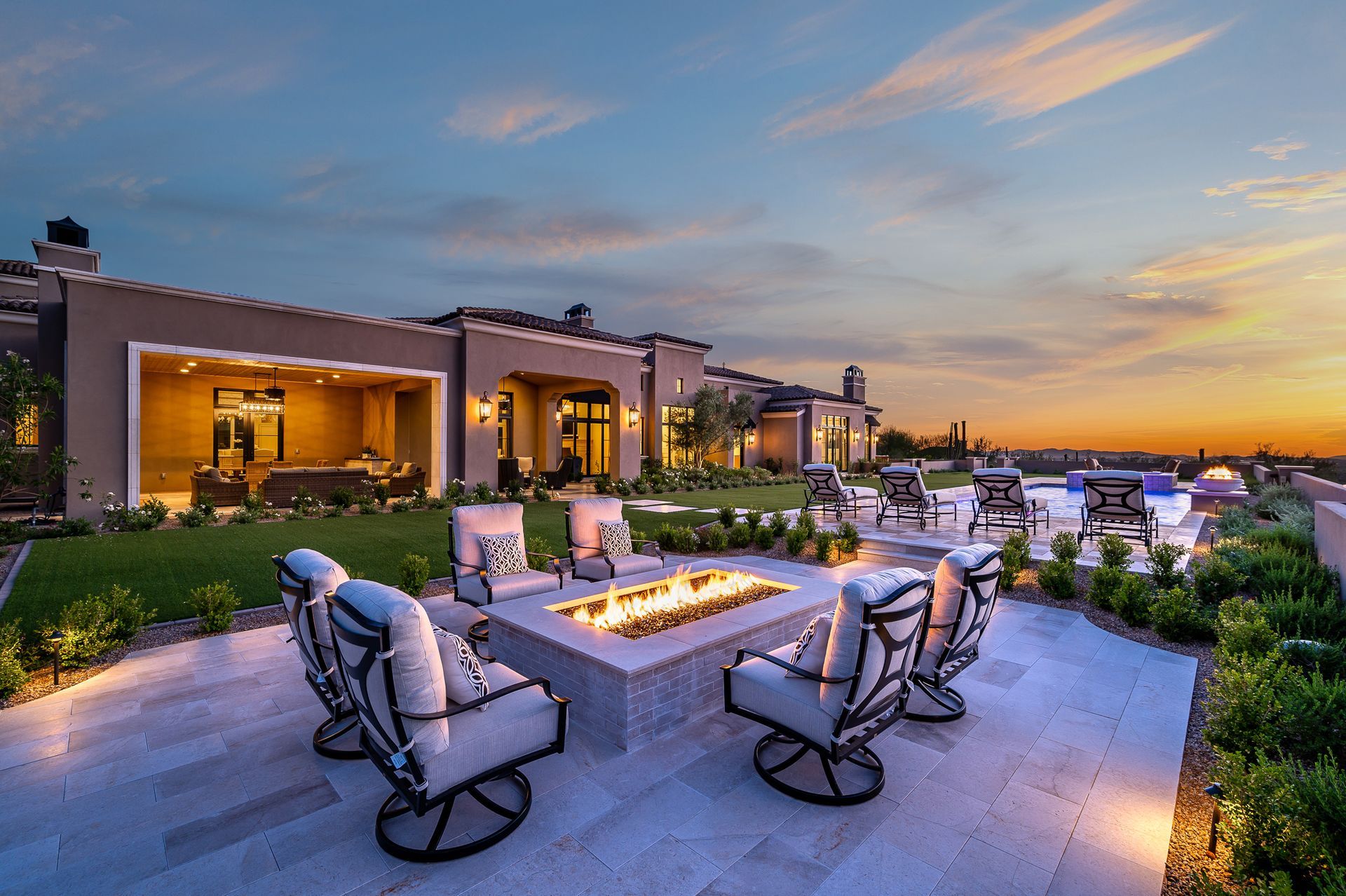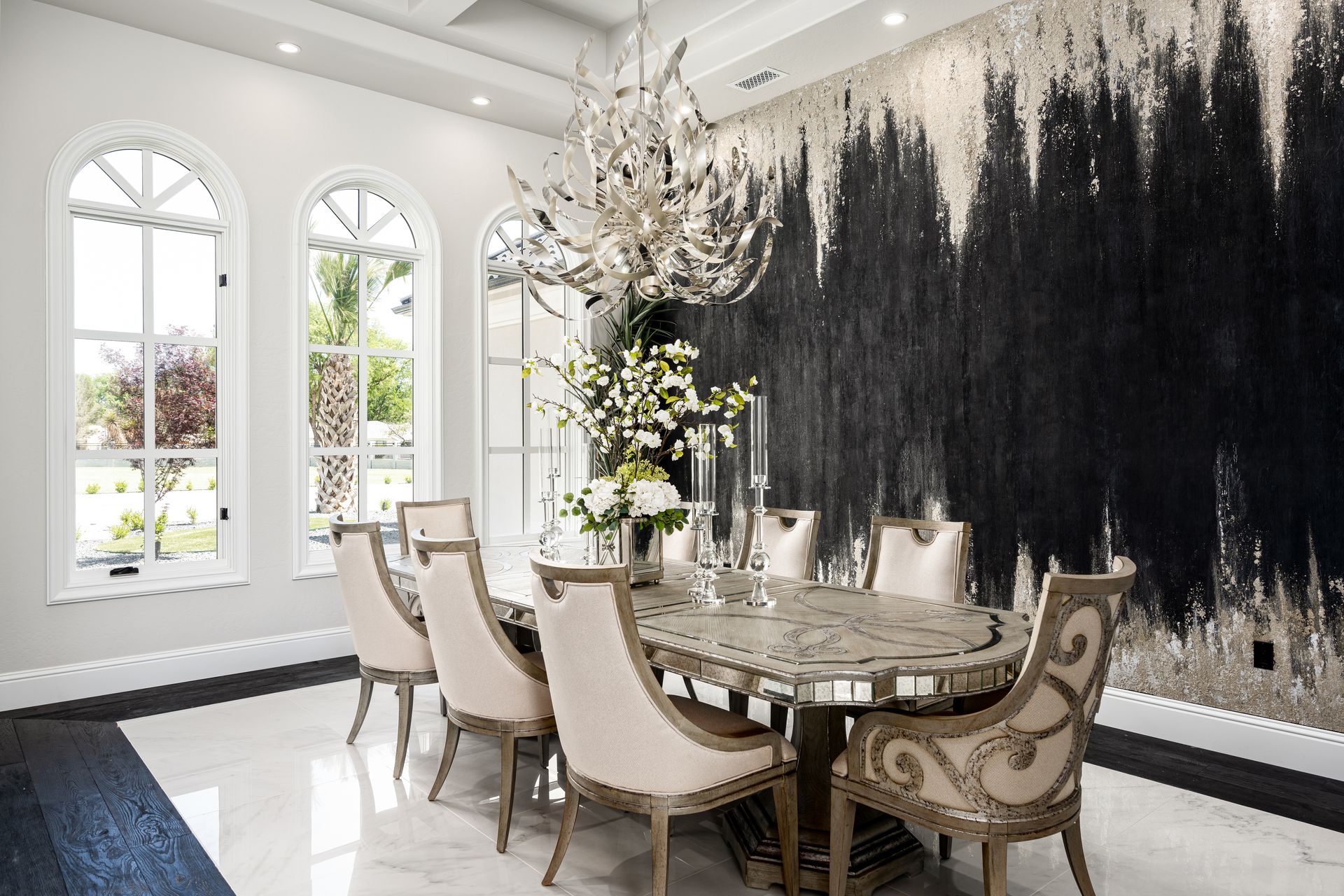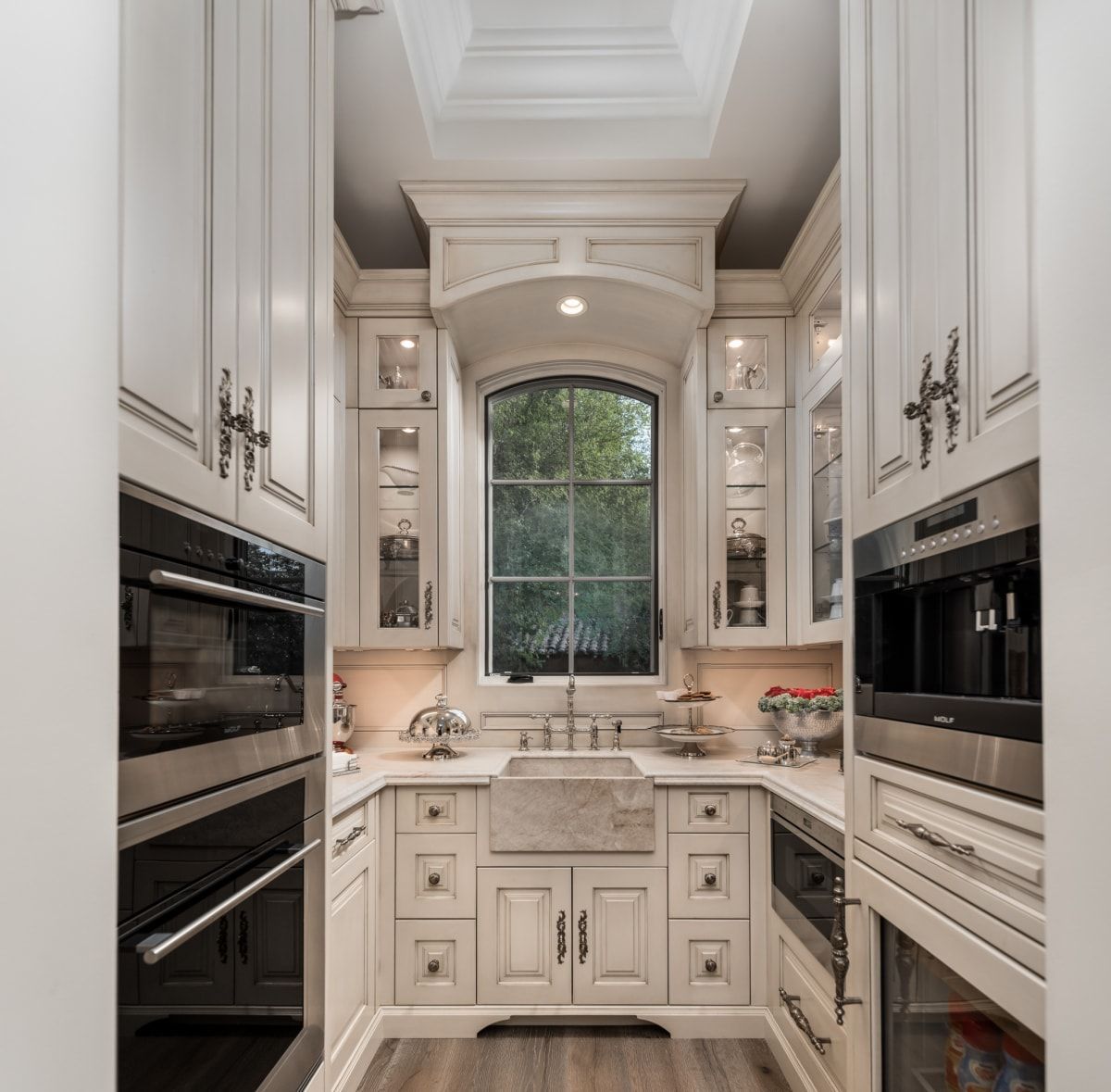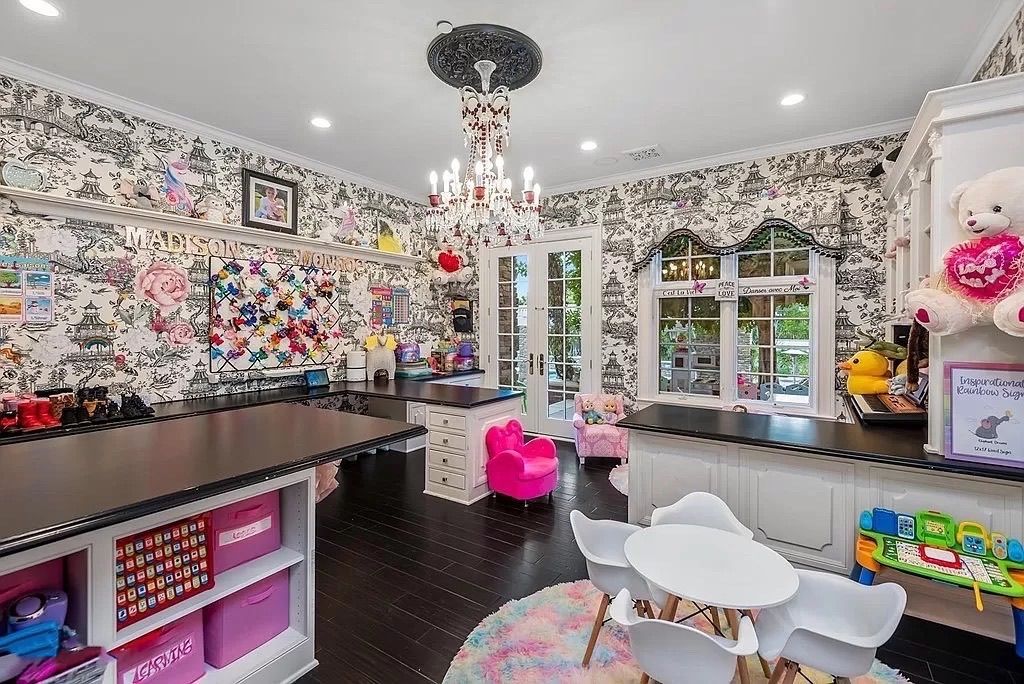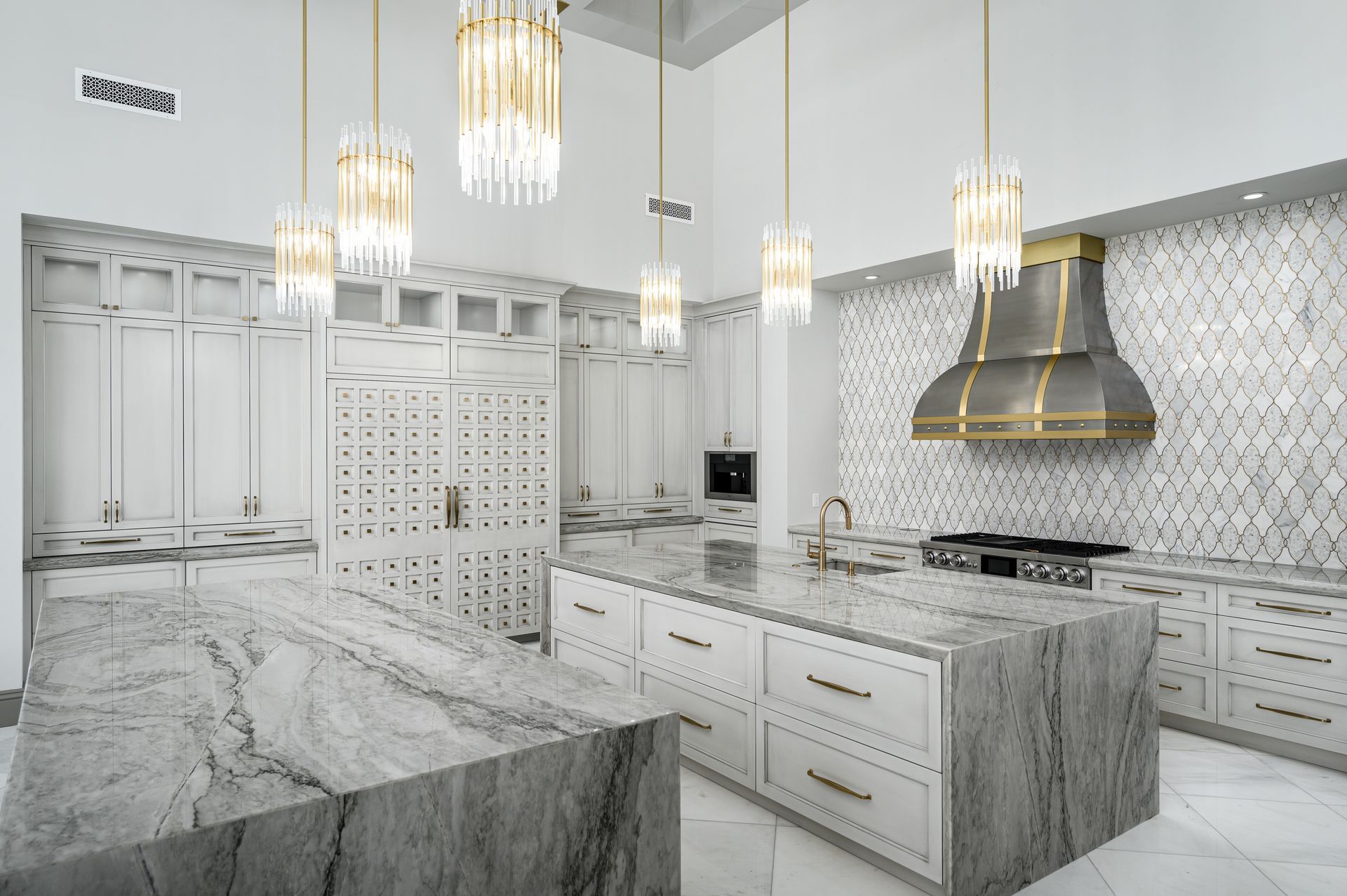The Timeless Appeal of Soapstone Countertops: Pros and Cons for Your Luxury Kitchen
The Timeless Appeal of Soapstone Countertops: Pros and Cons for Your Luxury Kitchen
Discover the timeless appeal of soapstone countertops, exploring their unique benefits and classic beauty for luxury kitchens.
Soapstone countertops have become increasingly popular in luxury home design, offering a unique blend of natural beauty and practicality. Unlike other materials such as marble, quartz, and granite, soapstone provides distinctive benefits that make it an attractive choice for homeowners. However, before you invest in soapstone countertops, it’s essential to understand both the advantages and disadvantages. This guide will help you decide if soapstone is the right choice for your kitchen.
Benefits of Soapstone Countertops
Durability
One of the most significant benefits of soapstone countertops is their durability. This natural stone is available in varying degrees of hardness, with the hardest types being used for kitchen surfaces, stoves, and sinks. Soapstone is incredibly resilient, impervious to most liquids and chemicals, and can last for generations. It’s not uncommon to find soapstone stoves and sinks from the 1800s still in use today.
No two slabs of soapstone are alike, making your countertop a unique and personal kitchen feature. The stone’s color can range from pale green to light gray, with some slabs featuring marble-like veining, especially those sourced from Brazil. You can choose to apply mineral oil to enhance the stone’s color or leave it natural for a lighter appearance. Soapstone’s natural beauty makes it an ideal choice for both traditional homes and high-end luxury residences.
Workability
Soapstone is incredibly practical for kitchen use. It’s heat-resistant, meaning you can place hot pots and pans directly on the surface without worry. Additionally, soapstone doesn’t stain, making it easier to maintain than other materials. Its workability in the kitchen rivals that of stainless steel, offering both durability and ease of use.
Density and Non-Porous Nature
Soapstone is a non-porous material, which means it will never absorb liquids. This makes it resistant to stains from wine, acidic liquids, and other common kitchen spills. Unlike other stone countertops, soapstone doesn’t require any sealant, making it a low-maintenance option.
Healthier Choice
The non-porous nature of soapstone also means that it is resistant to bacteria and germs, making it a healthier choice for your kitchen environment. This is particularly important for families looking to maintain a safe and hygienic kitchen space.
Environmentally Friendly
Soapstone is an all-natural material harvested from the earth and custom-cut to fit your kitchen. It can be fully recycled and doesn’t require any toxic sealers or chemicals, making it an eco-friendly choice for homeowners concerned about sustainability.
Textures Available
Unlike other stone surfaces that often come only in a high-polished finish, soapstone can be ordered with different textures. Whether you prefer a slightly rough or completely smooth surface, soapstone can be refinished to meet your aesthetic preferences while maintaining its soft-to-the-touch feel.
Return on Investment
Installing soapstone countertops can provide a strong return on investment when it comes time to sell your home. New soapstone countertops generally offer a 50% to 80% return on investment, adding both value and appeal to your property.
Cost-Effectiveness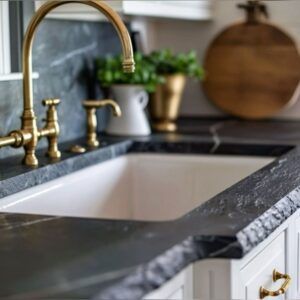
While soapstone slabs can be pricey, they are relatively easy to install, often making them a more cost-effective option compared to other natural stones. Homeowners with DIY skills can even install soapstone countertops themselves, further reducing costs.
How Soapstone Countertops Age
Soapstone ages beautifully and can last for generations. Scratches and dents can be easily sanded out, restoring the stone to its original condition. This is a significant advantage over other natural stones like granite, where imperfections are often permanent.
The Cons of Soapstone Countertops
Consistency
Soapstone is one of the softest natural stones available for countertops, which means it is more prone to scratches and dents than harder materials. However, these issues can usually be remedied with some sandpaper and mineral oil.
Surface Texture
While soapstone offers a variety of texture options, its natural roughness can sometimes scuff china and glassware. A smoother surface is often recommended to avoid this issue.
Regular Maintenance
For those who prefer a low-maintenance countertop, soapstone may require more attention. To maintain an even, darkened surface, regular oiling is necessary. Some homeowners may find this upkeep inconvenient, especially compared to materials like quartz or stainless steel that require less maintenance.
Limited Selection
Soapstone offers a limited selection of colors and patterns, which may not appeal to homeowners looking for a wider range of design options. If you’re after a trendy, colorful countertop, soapstone may not be the best fit.
Cost Factors
While the installation of soapstone countertops can be done as a DIY project, many homeowners prefer to hire a professional, which can increase the overall cost. Additionally, when factoring in the price of the slab and professional installation, soapstone can sometimes be more expensive than other natural stone options.
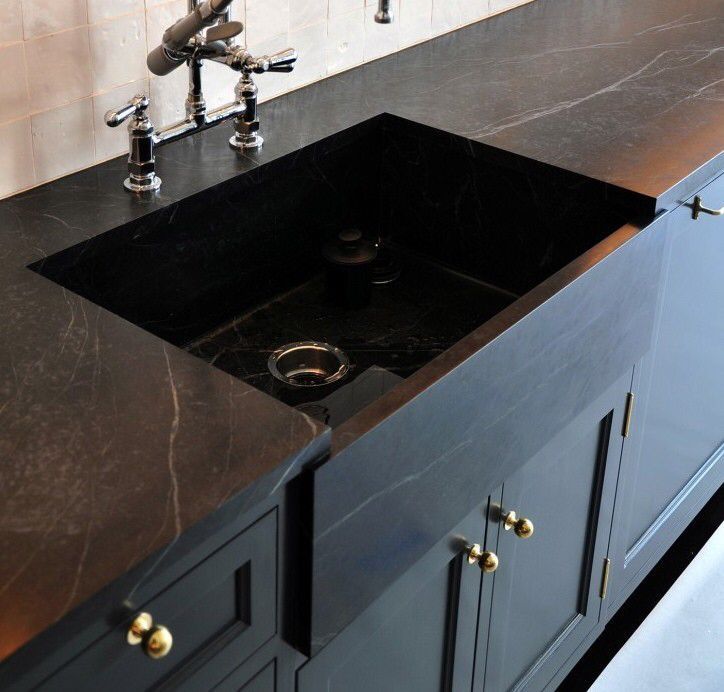
Work With Fratantoni Interior Designers — Top Luxury Interior Design Firm in the US!
When it comes down to it, soapstone countertops offer timeless beauty and unique characteristics that can enhance any luxury kitchen. However, weighing the pros and cons is important to determine if this material fits your lifestyle. If you’re considering soapstone for your home, contact Fratantoni Interior Designers today to explore how we can bring your vision to life with our unparalleled design expertise.
Photo Source: Pinterest
The post The Timeless Appeal of Soapstone Countertops: Pros and Cons for Your Luxury Kitchen
appeared first on Fratantoni Interior Designers.
Photo Source: Pinterest
The post The Timeless Appeal of Soapstone Countertops: Pros and Cons for Your Luxury Kitchen appeared first on Fratantoni Interior Designers.



